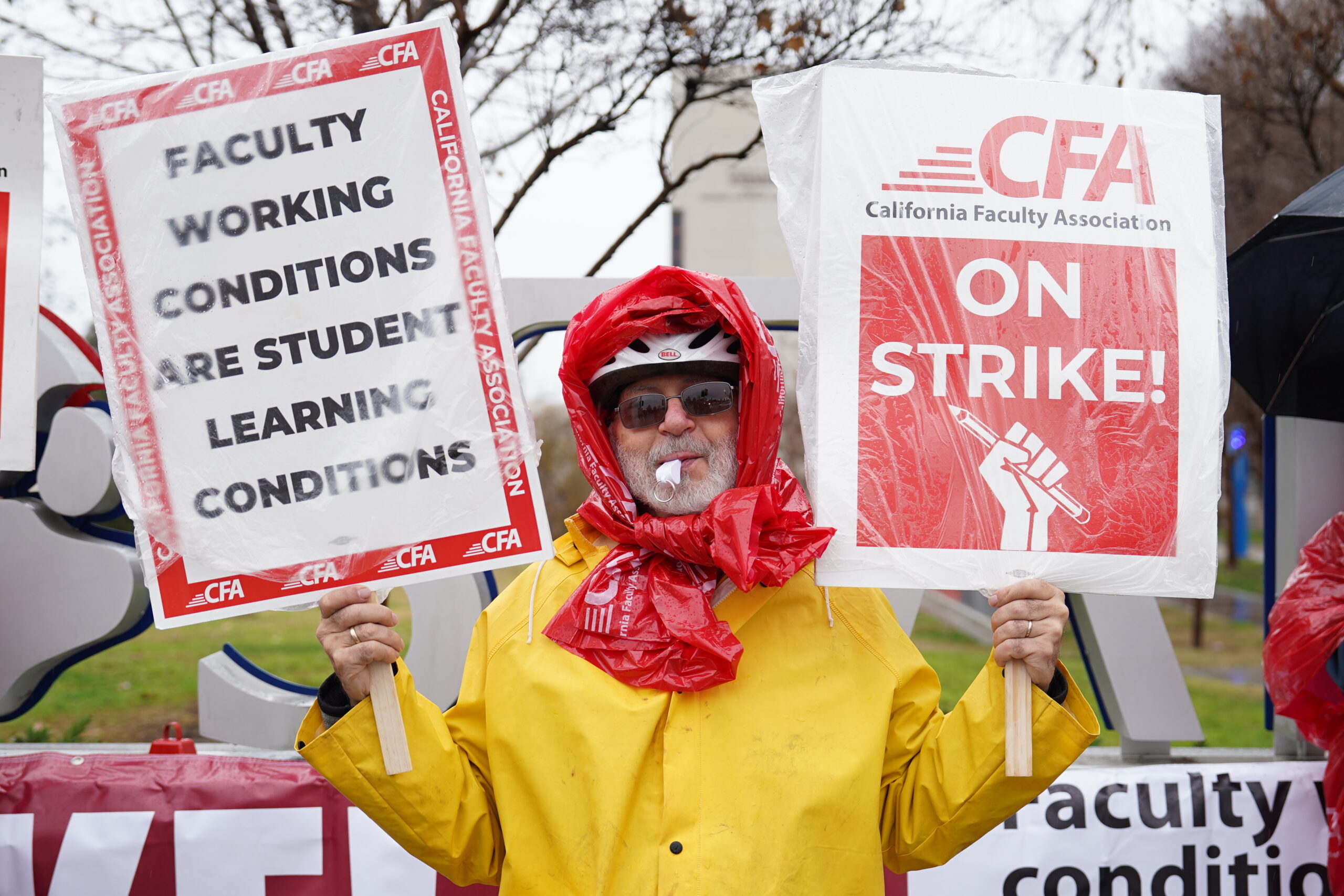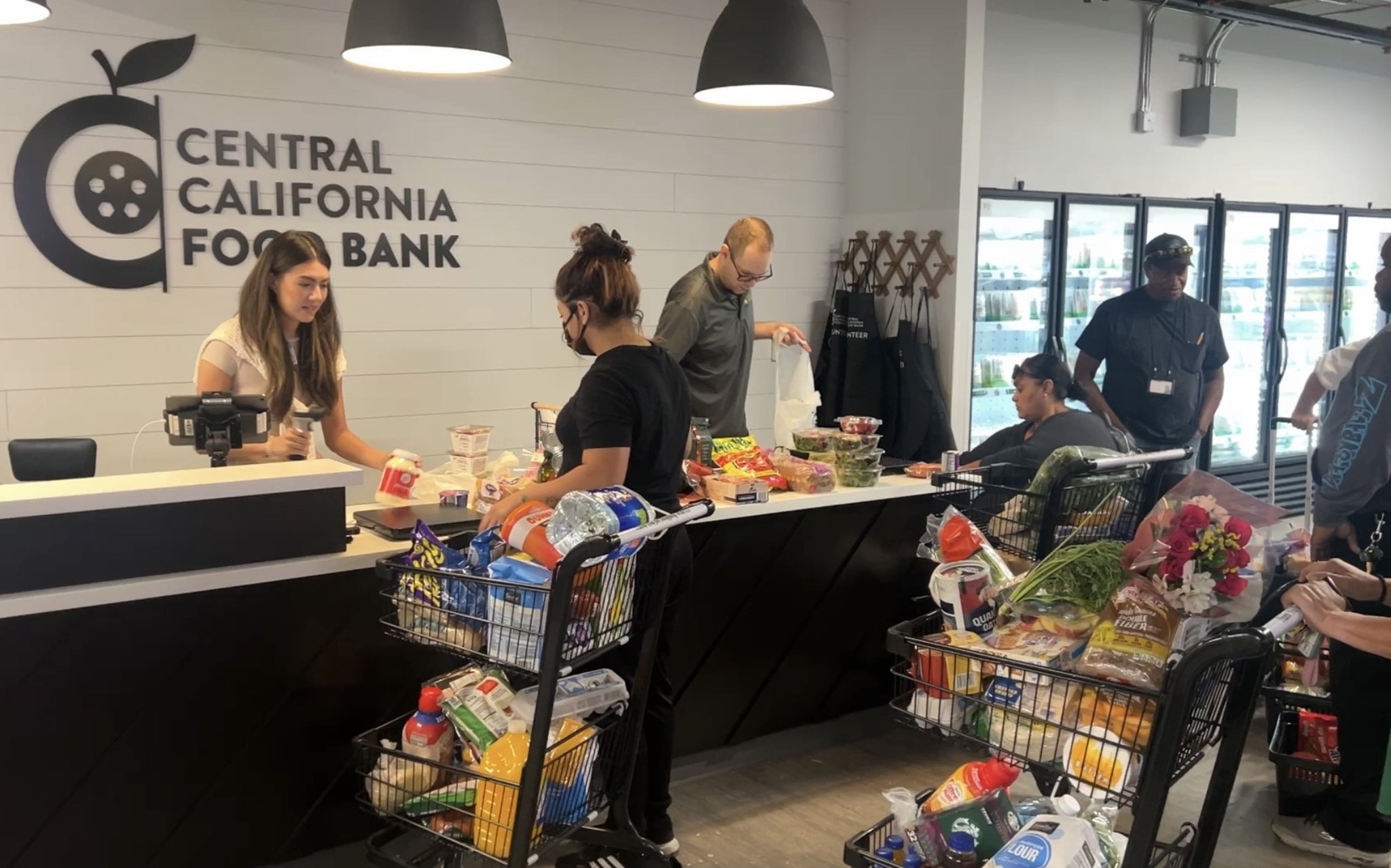
Story by Claudia J. Gonzaluez. This story originally was published by We’Ced Youth Media.
MERCED– Ruby Aguirre is beating the numbers.
“I feel so proud of to be graduating today,” said the first generation Mexican-American student at last month’s Merced College (MC) commencement. “This is my biggest achievement.”
According to the newest statistics from the Campaign for College Opportunity, there are now 15 million Latinos in California, but only less than two in ten working Latinos have a college degree. For local Latino students, the significance of achieving in higher education is not lost.
Aguirre, 21, a Psychology major, graduated with an Associate’s degree from MC and plans to transfer to California State University, Humboldt, where she will be pursuing her Bachelor’s degree in Social Work. She said she was very proud of her accomplishment in particular because, “not enough Latinas graduate from college or go to a university.”
Aguirre’s observation is backed by recent statistics. According to the April 2015 State of Higher Education in California: The Latino Report, Latinos are underrepresented in every sector of higher education. On average 51 percent of students graduate from a California State University in six years, but only 45 percent of Latinos do so in the same amount of time. Within the University of California system, the average overall graduation rate is 84 percent while for Latinos it is only 75 percent. And while 49 percent of students overall graduate from a community college in six years, only 39 percent of Latinos finish within the same time.
The report additionally states that about two thirds of Latino college students (7 out of 10) begin their college career at a community college, with many planning to finish their education elsewhere through a transfer pathway. This mirrors Aguirre’s academic journey, which she described as “difficult:” because she felt unprepared for college upon high school graduation, she made the decision to stay home and attend a community college.
Edmundo Zaragoza, 21, became the first in his family to graduate from a university when he was conferred a Bachelor’s degree in U.S. History from UC Merced this year. Although he went straight to college from high school, like Aguirre, he also faced challenges.
Zaragoza attended a charter school in Southern California where he felt he was “just a number.” Expected to complete difficult courses without much support, Zaragoza said he was not given the necessary tools or resources to be successful and as a result his grades slipped. Eventually, he got back on track by putting in many extra hours of studying.
To make matters more difficult, Zaragoza’s parents felt that a high school diploma would serve him well enough, and did not support him in his transition to UC Merced.
“I did not know what I was doing,” said Zaragoza. “No one taught me what to do, they just expected me to know. I felt all alone.”
Zaragoza’s story highlights the trouble many Latino youth encounter when preparing for college and through the application and financial aid process.
“Many of us are first generation students,” explained Zaragoza. “Schools often overlook this. They do not understand how hard it is for us.”
A combination of factors make road from high school to graduation difficult for first generation Latino college students, and the barriers often begin with the significantly higher chance that a Latino student will attend a low-performing high school in a low income area. In 2013, only three out of four Latinos graduated from high school in four years, and many who do graduate do not demonstrate academic readiness for the demands of a college course load
Despite many of these challenges, Zaragoza remained focused and earned his diploma, an accomplishment he feels belongs to his whole family, not just himself.
Zaragoza said his college experience would have been dotted with far fewer obstacles had his family been more informed about the process. His experience echoed one of the major recommendations of the Campaign for College Opportunity Report, specifically, educating Latino families about financial aid options.
“Research suggests that Latino students and their families have inaccurate perceptions of requirements, do not receive enough or accurate information in a timely manner, or are deterred by the application process altogether” leading to many students never completing their Free Application for Federal Student Aid (FAFSA) or applying for a Cal Grant, the report said.
Daniel Ruiz, a Financial Aid Student Services Assistant at MC, agreed.
“One major issue is that there is not enough material or outreach in the native language of these families.” said Ruiz, “ Because of this, many students are not aware of the various federal programs like the PELL grant, Work Study, and Direct Loans.”
Ruiz added that the majority of Latinos students come from low-income households and therefore qualify for the Board of Governor’s Fee waiver, which pays their tuition if they are California residents.
In addition, students face institutional hurdles such as a broken transfer pathways from community colleges into the CSUs and UCs.
Aguirre, the recent graduate, said she received so little information about transfer options that she turned to her peers for advice, instead of seeking help at her community college.
Undocumented students face even greater challenges, as the report estimated that three out of four college age undocumented youth, ages 18-24, are not enrolled in school, primarily because they cannot afford it, and are largely unable to access financial aid.
As the recent study concludes, because one out of two Californians under 18 is Latino, “the future of our economy and state will rise or fall on the educational success of Latinos.”
Ensuring more young Latinos attend and graduate from college at higher rates would have a significant impact in Merced, which ranks among the poorest counties in the state. The Merced County Office of Education estimates 70 percent of students of all Merced schools are Latinos, well above the 56 percent Latino population of California overall, as reported by the latest census. If this demographic enters college ready to achieve, the ripple effect could be astounding.
Though the numbers are grim, the tide is beginning to turn. A bright spot: on Friday May 22nd, the 52nd Annual Commencement ceremony at Merced College, some 1,180 degrees and certificates were awarded, and a majority went to Latinos.
To read the full report, you can visit the Campaign for College Opportunity here.


